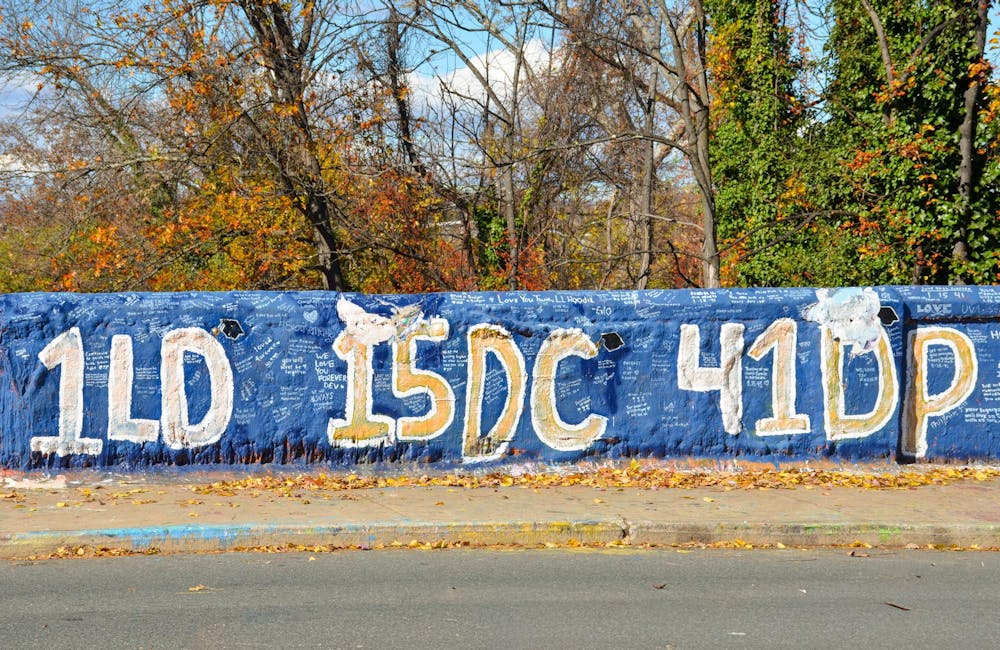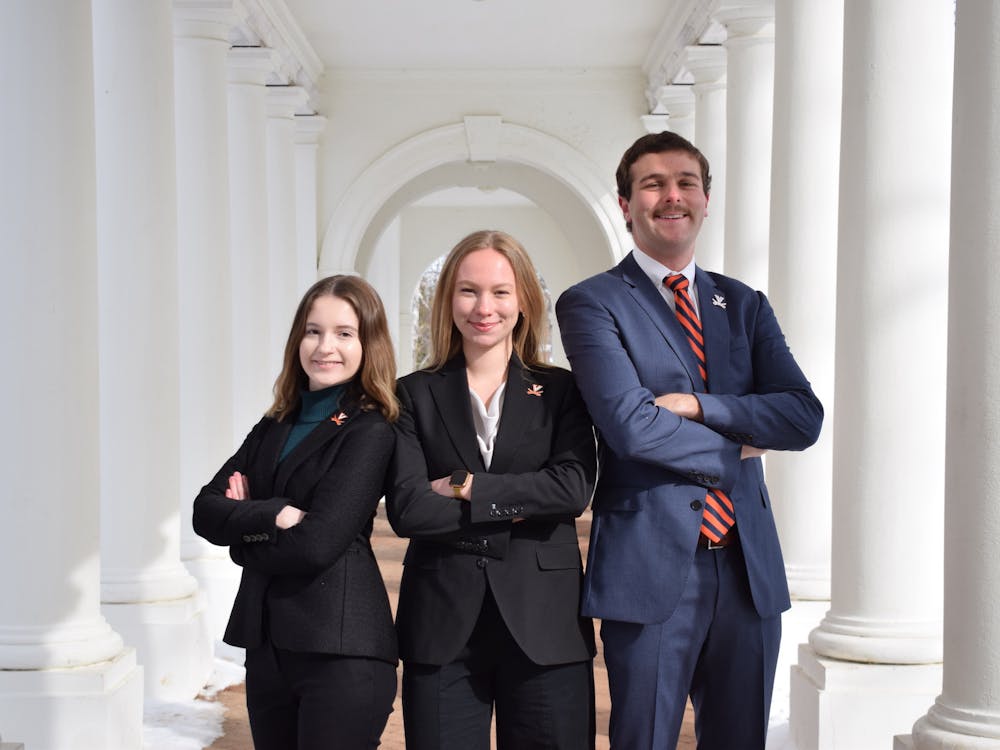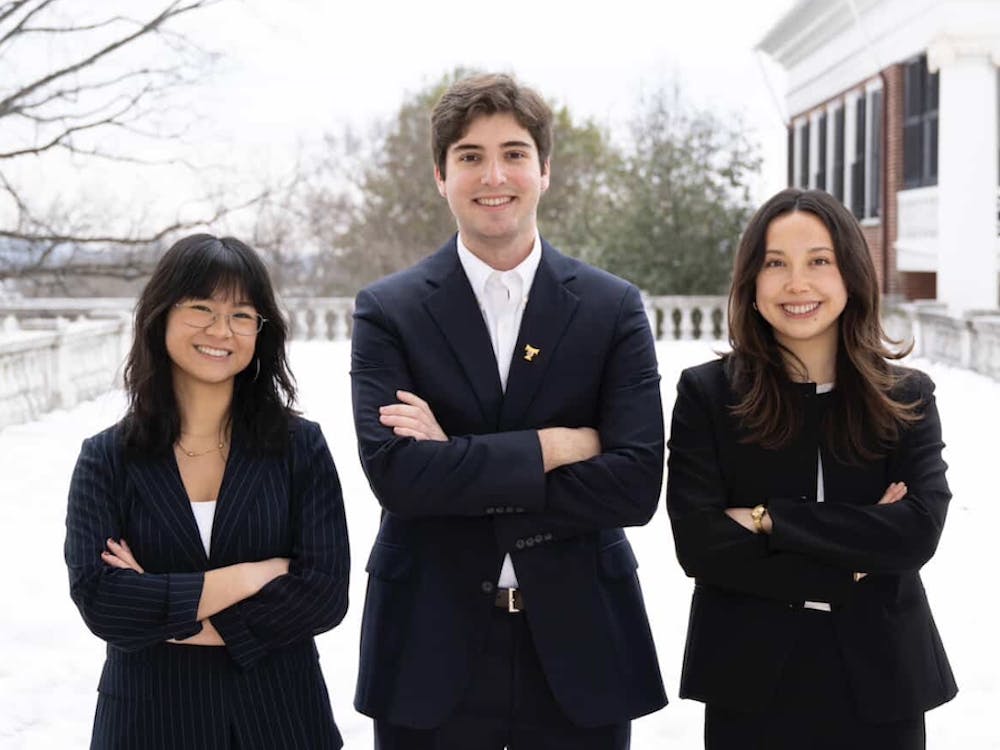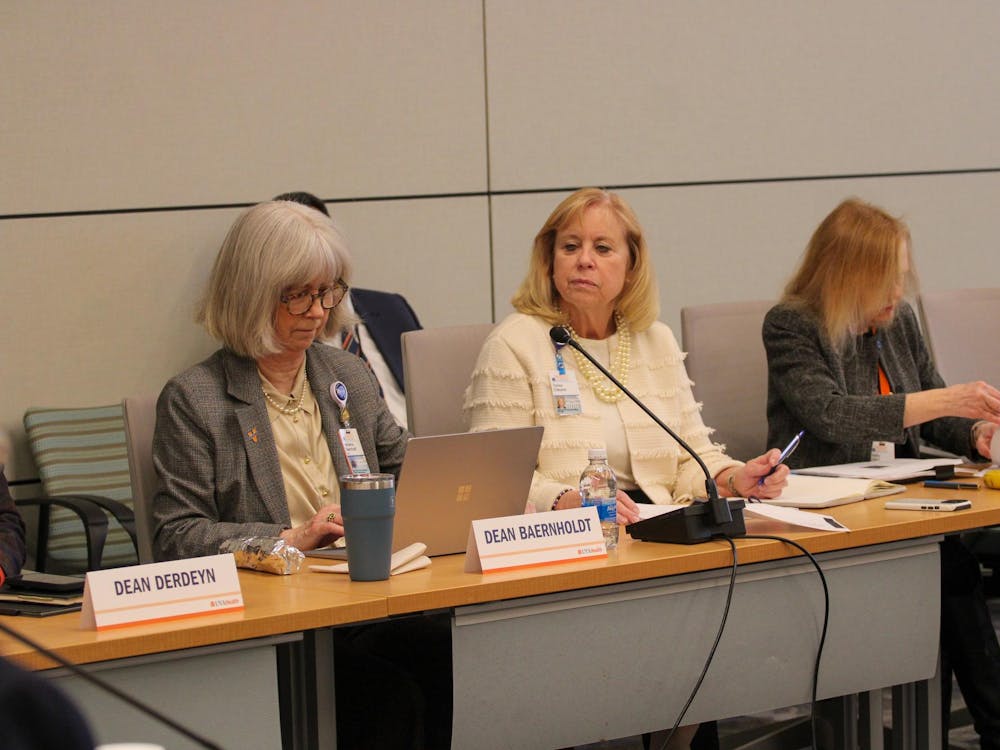It’s strange how grief works. It softens with time, yet it never truly disappears.
Three years ago, on Nov. 13, 2022, Virginia football players D’Sean Perry, Lavel Davis Jr. and Devin Chandler were fatally shot on a bus returning from a field trip. That night, a heavy, lingering silence settled over Grounds, suffused with shock and heartbreak. Students and faculty alike say that the shooting and its aftermath have left an indelible mark on the University community, with the memory of the tragedy resonating to this day.
For those who knew the three men personally, the anniversary of the shooting is especially poignant. Jack Hamilton, associate professor of American Studies and Media Studies, taught both Chandler and Davis Jr. He said that he remembers their charisma and good character, and their loss has had a profound impact on him.
“I wish I could have gotten to know both of them a lot better. These were people who had these incredibly rich and full lives with friends and family,” Hamilton said. “I wish that I had more opportunities to have them in class. It's just something indescribably tragic. I think about it still.”
The tragedy, which occurred around 10:30 p.m., resulted in a 12-hour manhunt for the suspect and a simultaneous University-wide lockdown. Students sheltered in place across Grounds in libraries, gyms and dorm buildings, barricading doors and monitoring the University’s “RUN, HIDE, FIGHT” alerts.
Fourth-year Engineering student Katie Fidler recalled her personal experience that night, replete with fear and uncertainty.
“[I was] very scared … I remember … waiting for U.Va. alerts to send out more information,” Fidler said. “I was on Yik Yak with my roommates, trying to get any information we could. I even remember having the police scanner out trying to listen to what was happening.”
Like Fidler, fourth-year Batten and Education student Claire DeBusk said that she tried to glean any and all details about the event from a chaotic swirl of alerts, social media posts and text messages.
“The scariest part for me … was just the lack of information about what was going on,” Debusk said. “I had never experienced anything like that before — what felt like a genuine threat.”
During the lockdown, Jeffery Smith, assistant dean in the Office of African-American Affairs, was one of the faculty members on call, positioned to be a resource for students. As soon as he arrived on Grounds in the early hours of the morning, he was struck by the ominous silence that permeated the air.
“There was no one — I only saw maybe a couple of cop cars — but other than that, nothing was moving. It was just an eerie, dark silence and just quietness,” Smith said.
After the tragedy, the University sought to create spaces for students to process their trauma and grief. Classes and activities were cancelled the following Monday and Tuesday, and many professors adjusted their syllabi and held class sessions where students could sort out their emotions and find community in conversation.
The University also organized several Grounds-wide events to foster community. Among these gatherings, student and University leaders organized a vigil on the South Lawn the evening after the tragedy. While Grounds was quiet all day, Kate Sweeney, assistant professor of practice in the Media Studies department, recalled the deafening silence that pervaded the memorial.
“It was so quiet that you could hear the football players gasping. You could hear their tears … it was so quiet you could hear people breathe,” Sweeney said.
For many, that night was the first time they fully felt the weight of what had happened — the loss, the fear and the realization that such violence had reached their community. Hamilton noted how surreal it was trying to make sense of the unthinkable.
“There [are] so many mass shootings in this country. It's something you hear about abstractly … and then one day you're like, ‘Oh, I know people who lost their lives,’” Hamilton said. “I think [it] is something that will always affect me.”
Three years later, threats of gun violence continue to affect the University community. The University experienced a false report of an active shooter Nov. 3, resulting in an hour-long lockdown across Grounds. Although the incident was fraudulent, DeBusk reflected on the painful memories these situations evoke in students like herself, who were shaken by violence three years prior.
“I [thought] to myself, ‘There’s no way this is happening again,’” DeBusk said. “You kind of relive what happened that night every single time, and it's unfortunate. It just becomes less and less shocking [as] we get more and more desensitized to these instances.”
Like Debusk, Hamilton explained how moments like the most recent lockdown can transport students and community members back to that fateful evening three years ago.
“You can't help it — [the shooting is] exactly where your mind goes,” Hamilton said. “Over the course of the last few years, there’s been a handful of times when we've gotten these very ominous alerts from the University, and it’s really hard — it's impossible — not to have your brain go back to that.”
While remembering the event conjures up complex, painful feelings for many, DeBusk said that the revisitation of the tragedy remains essential to honor those who lost their lives far too soon. She noted how critical it is for members, students, faculty and community members to attend memorial events and keep the memory of Chandler, Davis Jr. and Perry alive.
“I think it's important, whether people were here during the shooting or not, to attend the events that the University puts on in honor of [the] students who passed away that night,” DeBusk said. “I think the worst thing that could happen from this point on is people forgetting and not talking about it anymore.”
The legacies of Chandler, Davis Jr. and Perry are woven into the fabric of Grounds, their jersey numbers — 1, 15 and 41 — appearing in Scott Stadium, on Beta Bridge and even on t-shirts, signs and bumper stickers. Smith said he feels a wave of emotion when he sees the players’ numbers around the University.
“It's a reminder of … three great men who lost their lives way too soon, that were primed and positioned to do wonderful things, to make an impact in this community [and] on this football team … but then also the world,” Smith said. “It is always a reminder of that night for me.”
While these reminders can be harrowing, Fidler noted how they can serve as symbols that conjure a sense of communal resilience.
“[They’re] symbols that remind us that we are all a community and have been through hard things together, and that it's incredibly important to look out for one another,” Fidler said.
This sense of unity extends far beyond Grounds. Even as time has passed, the legacy of 1-15-41 has not just remained in the University’s memory, but has seeped into surrounding counties and communities as well. Sweeney said she has been particularly touched to see U.Va. Strong signs both in and around Charlottesville.
“Seeing those numbers in Gordonsville on somebody's bakery window … or when you're driving down Route 29 and you see the bumper stickers — I think it's really beautiful that a community, [not just Grounds], is holding a place for these memories,” Sweeney said.
On the Downtown Mall, a bustling hub for University students and Charlottesville residents alike, the memory of Chandler, Davis Jr. and Perry lives on. Three years later, 1-15-41 signs remain in the windows of Brightside Boutique, Roots Hair & Design and several other shops. Sweeney said that like grief, with time, the posters have faded, but they are undeniably still there.
“There's one particular window downtown [where] I still see [the sign].” Sweeney said. “The orange and the blue [have] faded, but you still see the numbers. And when I see the numbers, I see the faces. I really do … Those aren't just numbers. They're people.”







